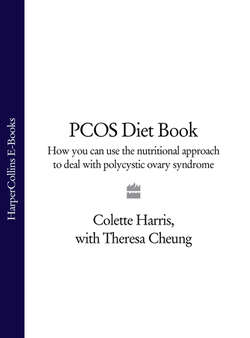Читать книгу PCOS Diet Book: How you can use the nutritional approach to deal with polycystic ovary syndrome - Theresa Cheung - Страница 58
Why?
ОглавлениеThe typical way many of us find ourselves eating is a small or non-existent breakfast followed by a light snack at lunch and then a big evening meal. Sometimes people don’t eat at all until their evening meal, which can be as late as 8.30 p.m. Stacking your calories like this isn’t a very good idea, especially if you have PCOS.
First of all, you are telling your body that once you get up in the morning you are fasting. In the fasted state your body will do its best to hold on to every last calorie, as it is not sure when it will get the next one. Your body achieves this very effectively by reducing your metabolic rate. Not only this, but in the fasted state, because of your brain’s absolute requirement for glucose, you begin to break down your own muscle to provide the necessary glucose.
You can’t convert fat into glucose. The net effect is a loss in muscle mass and reduction in your metabolic rate. Then when you do eat in the evening, your body is now set up to store as much fat as possible. After eating you often go to bed, so your body has little time to use any of the calories that you have just consumed.
Missing breakfast and fasting during the day isn’t a good idea because it encourages weight gain, sends your body confusing signals and deprives your body and your mind of the energy they need to function optimally. If you have PCOS and are worried about weight gain, you aren’t doing yourself any favours with such an uneven food intake during the day.
